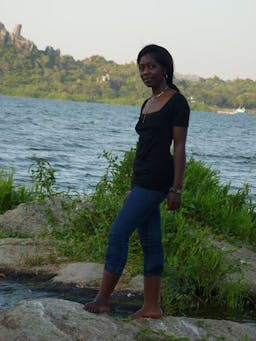LEAVE NO ONE BEHIND: Embracing diversities while building Transformative Feminist Movement across borders.
May 28, 2019
First story
Leave no one behind is indeed a powerful statement in ensuring inclusive and sustainable development for all, regardless of anything. This statement was emphasized more and more during the two weeks Ewha Global Empowerment Program (EGEP) which took placefrom 9 to 23 July 2017 at Ewha Women’s University campus in Seoul, South Korea.
The program took on board 21 female participants from 19 countries in Africa and Asia:Three participants from Africa (Ghana, Malawi and Tanzania) and 18 from Asia (China, South Korea, India, Nepal, Pakistan, Bhutan, Bangladesh, Cambodia, Kazakhstan, Laos, Indonesia, Malaysia, Mongolia, Myanmar, Philippines and Uzbekistan).
With the theme, “Transnational Feminism and Women Activism”, it was observed that one of the feminists’ way is to leave no one behind. “As we are building the movement we should be conscious that everyone is being taken on board regardless of theirlanguage, background, status or anything else.” Said Dorothy S. Benjamin, EGEP alumni who was one of the facilitators in the program.
Being one of the participants of this residential educational program, I have realized that women issues have a global face because listening to Asian countries’ experiences, I saw the challenges that women are facing in mycountry is what they too are facing: Gender Based Violence (GBV), menstruation as a taboo subject, girl child education, climate change and its impact to women, to mention a few.
I have learnt how important it is to think beyond our territories when addressing women issues. This helps in knowledge and experience sharing, and making our voices louder and thus, building a stronger movement for transforming the lives of women.
However, as we think of engaging across countries, it is crucial that we embrace other people’s culture in a different way and understand how it works in the wider world. This involves respect for and appreciation of differences in ethnicity, gender, age,origin, disability, education, religion, to mention a few. It is essential that we understand others’ diverse culture, environment, and life styles to create more acceptance eventually this helps in understanding why certain injustices happens to suchcommunities as we work towards transforming the society.
Besides, there is a need for valuing, respecting and supporting the needs of every individual in ensuring that each one’s right conditions is taken on board for them toachieve their potentials. This has been referred to as inclusive diversity. As the result, it strengthens the movement’s spirit and solidarity.
Among other activities that was carried out during the program, participating in“Wednesday Demonstrations-the longest running protest over comfort women” was quite, an experience of its own on how inclusive diversity plays a great role in strengthening solidarity.
The demonstration, which aims at demanding full investigation and fulfillment of responsibilities to restore the dignity of the victims of Japanese sexual slavery war strategy during World War Two-“comfort women”, has turned into a place for solidaritybetween citizens and the victims, a living site for history education, and a platform for peace and women’s rights, bringing together in harmony beyondgender, age borders and ideologies.
As a Tanzanian representing other EGEP participants from 18 countries in expressing our view on the issue and joining hands with the comfort women in demanding for the restoration of their dignity by the Japanese,I felt a strong touch as a part of the movement, not only because of the strong bond between the citizens, including youths, children, men and women with different backgrounds, and the comfort women who were very aged which is the result of acknowledgingdiversities but also, because of the strong will and determined spirit of those aged grandmothers who have hopes that a day will come when the Japanese will be held accountable for their wrong deed towards them.
Personally, this program, through variousactivities carried out such as workshops, lectures, study tours, social hours, action plan and cultural experience, has widened my knowledge on feminism and women activism across borders knowing that women’s issues have a global face.
I was inspired and empowered in so many ways, especially, through the diversity of participants who were in the program and how well the bond was established regardless of our backgrounds, race, culture, or nationality differences. We listened to eachother, and learnt from each other the best practices for transforming the lives of women in our countries.
The EGEP was launched in 2012 to offer full financial support to nurture talented womenworking in non-governmental public sectors in Asia and Africa. This year ACWS organized its 12th EGEP which aimed at strengthening abilities in the theory and in practice, of talented women in non-governmental public sectors, educating womenleaders of the next generation who will lead the change in a time of globalization as well as contributing to the betterment of international women’s rights and to the development of the global community through women’s education.
I am so grateful that I was one of the participants in this program. Besides, I am so excited in working towards this path of transforming women’s lives and making the world a better place to women, men, youth, children, elderly and everyone.




